Lower Thames Crossing: Plans accepted by the government
- Published
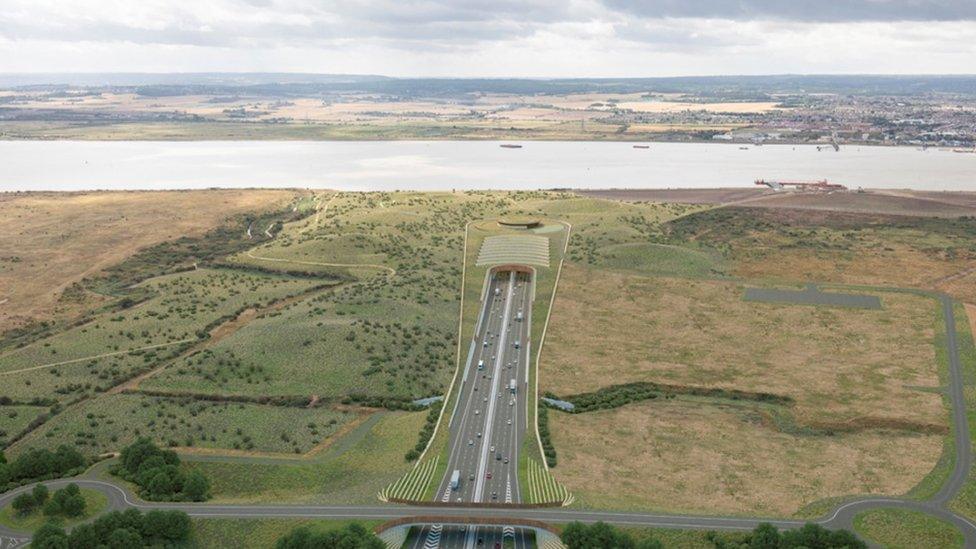
An artist's impression of the route on the north side of the Thames
The government has accepted plans for the Lower Thames Crossing - a 14-mile (23km) link between Kent and Essex.
The decision means the Planning Inspectorate is satisfied with National Highway's consultation.
The plans will now be examined by a panel of government appointed independent experts.
Work on the two new 2.5-mile (4km) tunnels under the Thames could start as early as 2024 and be finished by 2029, if it gets the go ahead.
Laura Blake, chairman of the Thames Crossing Action Group said: "We were surprised by the news that the Lower Thames Crossing Development Consent Order has been accepted."
She said Thurrock council felt certain parts of the consultation process had not been legally compliant, the Local Democracy Reporting Service has reported.
She added: "The proposed Lower Thames Crossing would be hugely destructive and harmful, and fails to meet the scheme objectives. It wouldn't solve the problems at the Dartford Crossing, which would still remain over capacity."
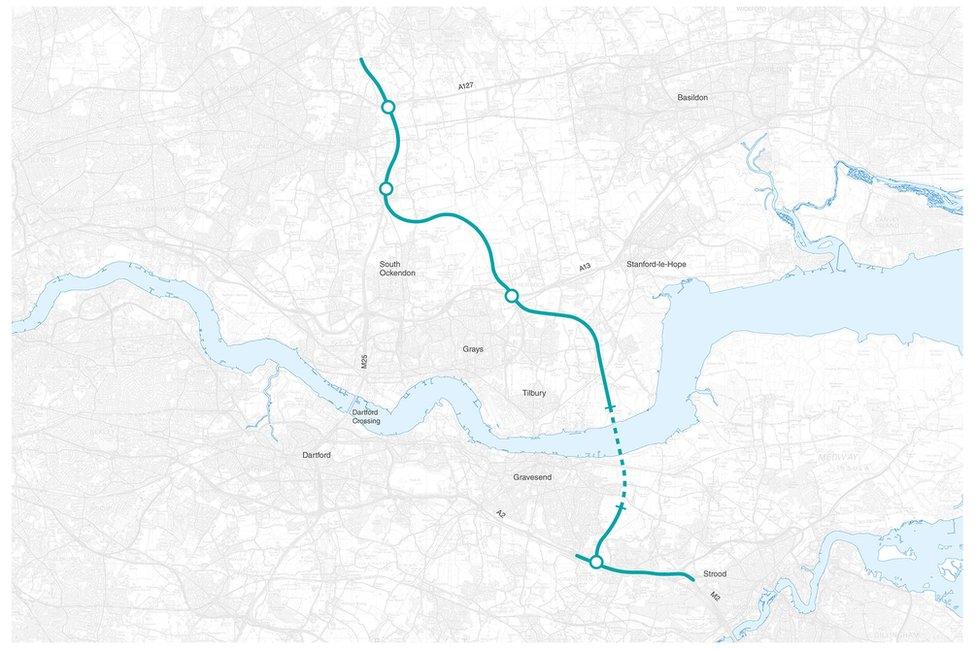
The route plans to connect the M2/A2, A13 and M25
The Campaign for Rural England (CPRE) and the Woodland Trust, have said a range of habitats and landscapes in Kent and Essex were under threat, and the project could become "England's most damaging road scheme for a generation".
The planning process is likely to take around 18 months including six months of examination, with some taking place at public hearings.
Matt Palmer, executive director for the Lower Thames Crossing, said: "The Planning Inspectorate has accepted that our comprehensive programme of consultation and design development has been undertaken properly, meaning our plans can now be taken forward for robust and thorough examination by independent, government-appointed experts."

Follow BBC South East on Facebook, external, on Twitter, external, and on Instagram, external. Send your story ideas to southeasttoday@bbc.co.uk, external.
Related topics
- Published8 November 2022

- Published23 May 2022

- Published12 May 2022
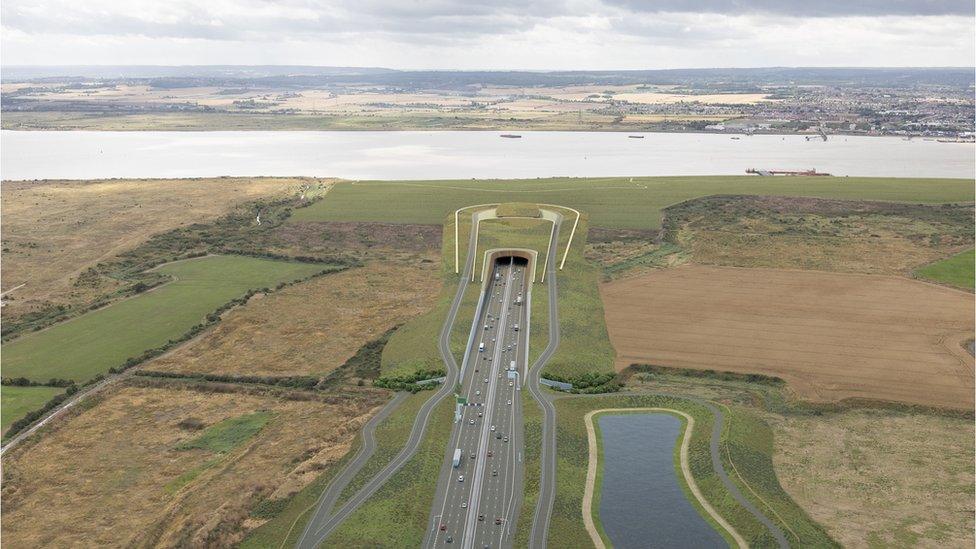
- Published26 July 2021
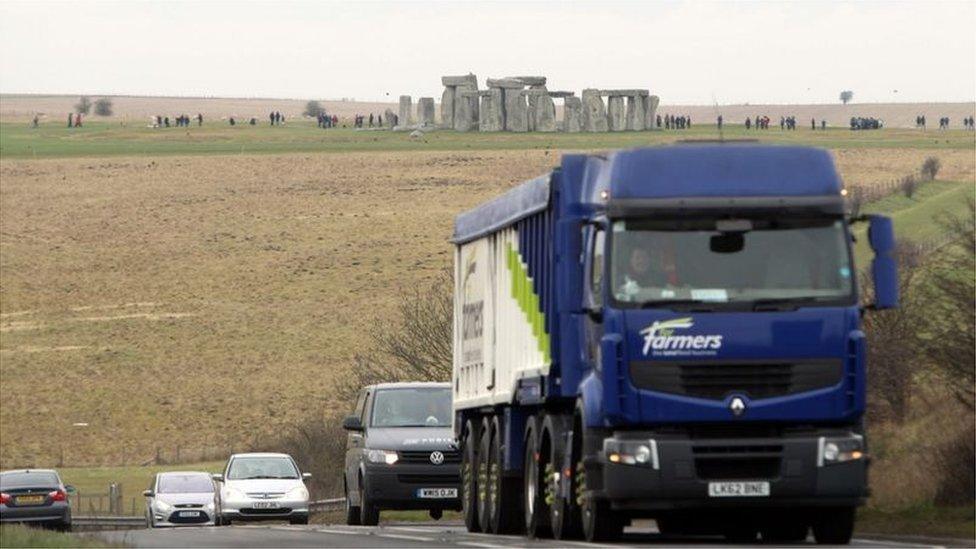
- Published6 December 2020
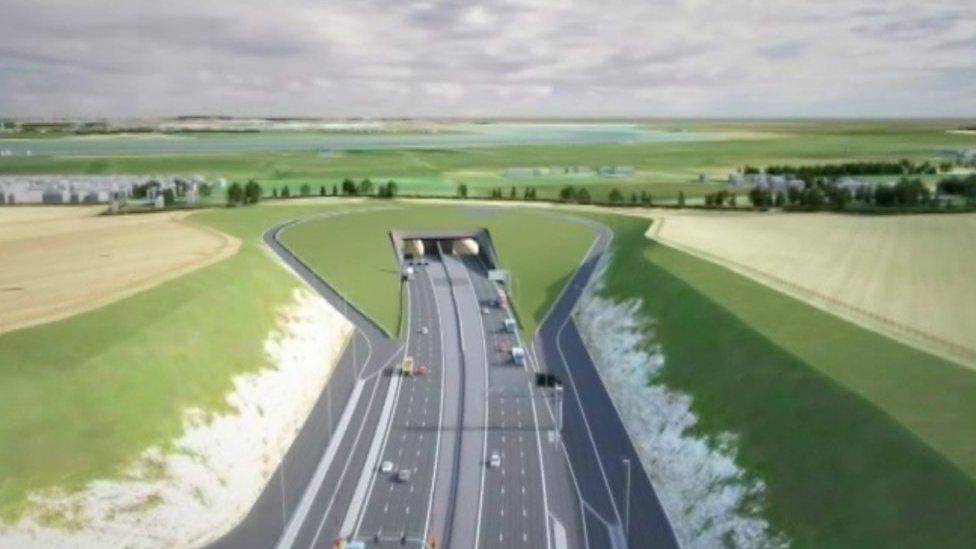
- Published10 October 2018
